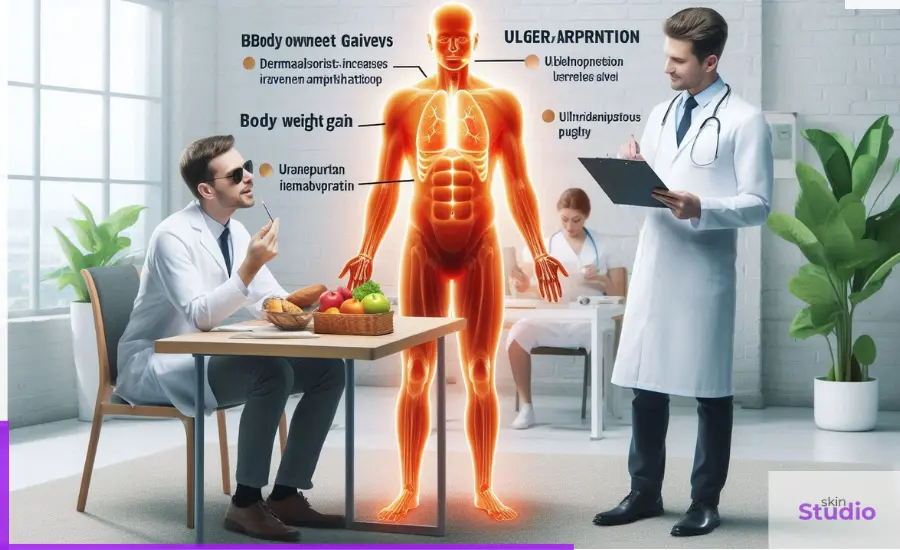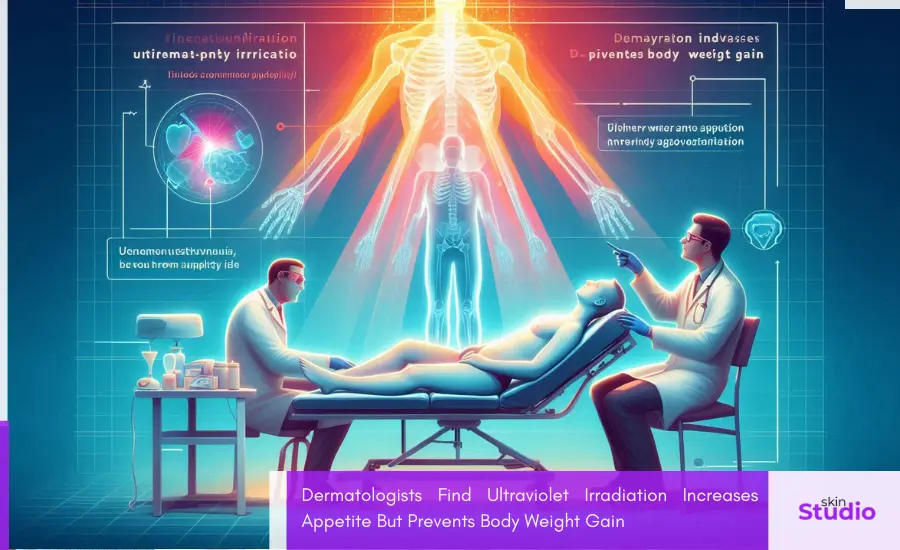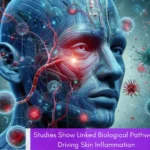Ultraviolet Radiation: A Surprising Ally in Appetite Regulation and Obesity Prevention.
Obesity and metabolic disorders are pressing global health challenges. As researchers explore new ways to combat these issues, a recent study sheds light on the unexpected role of ultraviolet (UV) radiation in appetite regulation and weight control. This study, conducted by a team of dermatologists, reveals how UV exposure can increase appetite while simultaneously preventing weight gain by altering key metabolic processes.
The Impact of UV Radiation on Metabolism and Weight Control
Researchers are now recognizing the potential benefits of ultraviolet radiation in weight management, despite its common association with skin damage and increased cancer risks. The Journal of Investigative Dermatology published a study that found UV exposure to elevate norepinephrine levels, reduce leptin levels, and promote the browning of subcutaneous fat. These changes enhance energy expenditure, providing a fresh outlook on managing obesity and metabolic disorders.
UV Exposure is more than just skin deep.
The skin, the body’s largest organ, is a significant interface between our internal and external environments. While UV radiation is known for causing sunburn, photoaging, and skin cancer, it also plays a crucial role in synthesizing vitamin D and, as this study suggests, regulating energy balance.
Dr. Qing-Ling Quan and Dr. Eun Ju Kim of Seoul National University Hospital highlighted that UV exposure’s effects on subcutaneous fat metabolism could influence overall energy homeostasis. Their research suggests that, although UV rays do not penetrate deeply enough to reach subcutaneous fat directly, their impact on the skin can trigger a cascade of metabolic changes affecting the entire body.
How UV Radiation Affects Appetite and Weight

The research team discovered that consistent UV exposure led to an increase in appetite in mice, driven by decreased levels of leptin, a hormone that usually suppresses hunger. Interestingly, despite an increased appetite, the mice did not gain weight. We attributed this paradoxical outcome to the enhanced secretion of norepinephrine, a neurotransmitter that not only reduces leptin levels but also promotes the browning of subcutaneous fat. This process turns white fat, which stores energy, into brown fat, which burns power, thereby increasing the body’s overall energy expenditure.
The Browning of Fat: A Key to Preventing Weight Gain
White fat cells, typically involved in energy storage, undergo a critical process known as browning of subcutaneous fat, where they transform into brown fat cells, which are more metabolically active and burn energy to generate heat. This process is a crucial factor in the body’s ability to prevent weight gain despite increased caloric intake. The study’s findings indicate that UV exposure enhances this browning process, making it a potential strategy for weight management.
Potential Implications for Obesity Treatment
The insights gained from this research could pave the way for new approaches to preventing and treating obesity and metabolic disorders. By understanding the mechanisms through which UV radiation affects appetite and fat metabolism, scientists could develop innovative strategies to mimic these effects without the risks associated with UV exposure.
Lead investigator Dr. Jin Ho Chung emphasized the significance of these findings in advancing our understanding of energy metabolism. He noted that UV radiation’s ability to lower leptin levels, increase norepinephrine secretion, and promote the browning of fat cells offers promising new avenues for developing obesity treatment strategies.
Balancing the Benefits and Risks of UV Exposure
While the study highlights the potential benefits of UV exposure for weight management, it also raises concerns about the associated risks. Dr. Dong Hun Lee, a co-corresponding author, cautioned that UV exposure can accelerate skin aging and increase the risk of skin cancer. Therefore, it is essential to balance these benefits with the need to protect the skin from UV damage.
Moving forward, the research team plans to explore alternative strategies that could replicate the metabolic benefits of UV exposure without the harmful effects. These future studies aim to develop safe and effective methods for harnessing the power of UV radiation to manage obesity and metabolic health.
Conclusion
The discovery that UV radiation can influence appetite and prevent weight gain opens up new possibilities for obesity treatment and metabolic regulation. By enhancing our understanding of how environmental factors like UV radiation impact our bodies, researchers can develop innovative strategies to combat the growing epidemic of obesity and its related disorders. However, the need for caution remains, as the long-term effects and safety of UV exposure continue to be a critical consideration in developing these new approaches.


